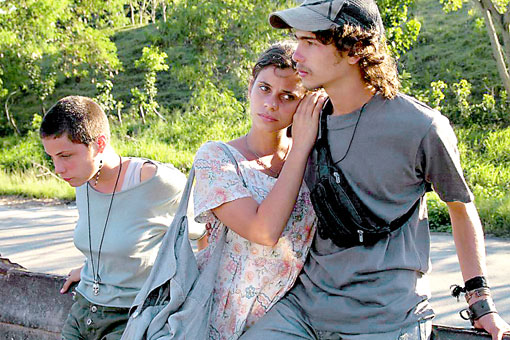Boleto al Paraíso (Ticket to Paradise) by Cuban director Gerardo Chijona is set during the “special period” of extreme hardship in Cuba that followed the collapse of the Soviet Union in 1991. Using the tale of two runaway teens, the movie contrasts the universal desire for a better life with the hopelessness of daily life, especially among Cuba’s youth.
Eunice (played by Miriel Cejas), flees a sexually abusive household and meets Alejandro (played by Héctor Medina), who is supposedly on his way to a rock concert in Havana with a group of friends. Eunice, who longs for a family to call her own, quickly latches on to the tight-knit group.
But Alejandro and his friends, we discover, are really going to Havana to infect themselves with HIV so they can be admitted to a state-run sanatorium, where they will get good food and a roof over their heads. This is their “ticket to paradise,” they believe.
Alejandro and Eunice are fictional characters, but the film draws on true stories of patients in the Sanatorio de Santiago de Las Vegas, a facility in Los Cocos, Cuba—as told by Dr. Jorge Pérez, who began treating HIV patients in 1983. Pérez describes his work in a 2006 book, SIDA: Confesiones a un médico (AIDS: Confessions to a Doctor).
The story of Eunice and Alejandro reflects real stories in Pérez’ book, making the movie all the more haunting. “I made a point of narrating the story through Eunice so viewers would relate to the other characters [through her] and think about the decisions they were forced to make,” says Chijona.
Chijona’s portrayal will leave some filmgoers not only sympathetic to the characters’ choices—but accepting them as rational.
Boleto al Paraíso was accepted to the 2011 Sundance Film Festival in in Utah. It premiered in New York on April 7 at the Havana Film Festival.






